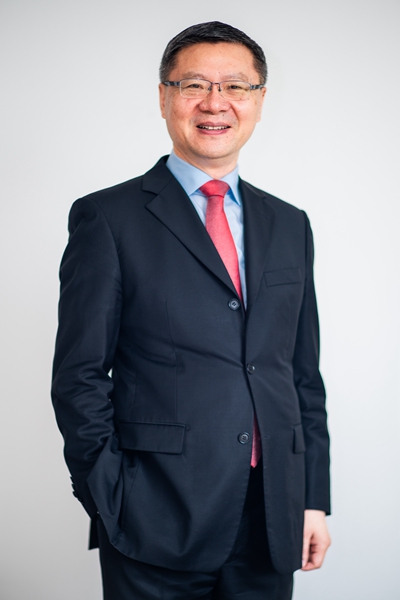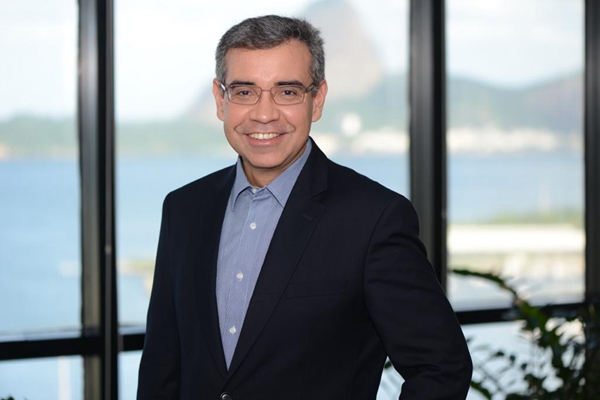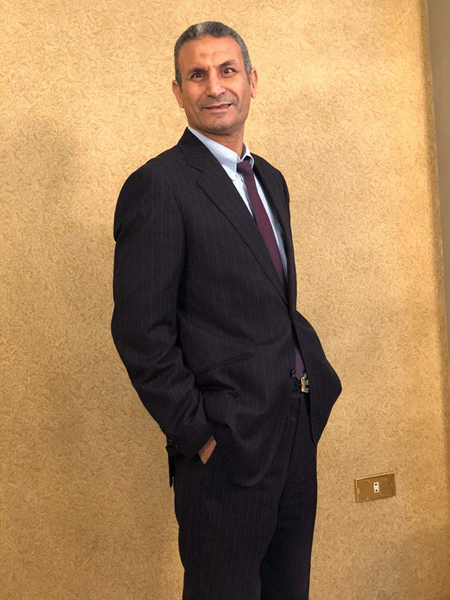The COVID-19 outbreak has created a global public health crisis, and the challenge of combatting this pandemic and its impact is daunting. Some have even described the pandemic as the "worst crisis since World War II" due to the tremendous consequences it has caused in terms of the number of people affected, as well as the impact on the global economy and people's way of life.
As of March 31, more than 780,000 confirmed cases have been reported in 178 countries and regions around the globe, along with over 37,000 deaths, according to the latest data from Johns Hopkins University's Center for Systems Science and Engineering. This number is expected to increase further as the spread of the disease worldwide shows no sign of slowing down.
Against this backdrop, scholars and experts gathered on Monday for an online seminar – "Contemporary China and World: International Think Tank Webinar on Combating COVID-19" – to discuss the challenges of governance at the international level in response to emergencies such as COVID-19, so as to improve the international community's capability and efficiency in managing public crises.
China, as the first country to be hit by the epidemic, was severely affected over the past few months since the first case was reported in Wuhan in late December 2019. The country has taken tough and resolute measures to contain the spread of the virus, provide large-scale medical care and enforce accountability mechanisms. As such, China has brought the spread of the virus under control despite huge costs to both its economy and the convenience of people's lives.
However, faced with the common enemy of humankind, some western media reports instead ridiculed China's response to the outbreak.

Zhang Weiwei, director of China Institute, Fudan University [Photo provided to China.org.cn]
In this regard, Zhang Weiwei, director of the China Institute at Fudan University, pointed out that western media outlets made huge mistakes which produced tremendous costs for western societies at this time.
"China has made tremendous sacrifices in this battle and its efforts are an important contribution to the world, as they bought precious time for other countries," he said, adding that people should do away with their strong ideological bias and cognitive bias towards China.
Zhang also emphasized that only by uniting the entire population, taking science-based and targeted measures, and having confidence, can the international community defeat the virus, and build a global health community to fight this pandemic.
The fight against COVID-19 is not only a great test for all nations but also for their governance systems.

Evandro Carvalho, director of the Center for Brazil-China Studies, FGV, Brazil [Photo provided to China.org.cn]
Evandro Carvalho, head of the Center for Brazil-China Studies at the Getulio Vargas Foundation School of Law, pointed out that China's experiences in containing the outbreak show that it is necessary to have efficient measures to contain the virus, increase transparency of information and the decision-making processes of governments, and promote solidarity between the people as well as states.
In the midst of this COVID-19 pandemic, countries are being compelled to exchange information and cooperate with one another, which might be the lessons that countries can learn from this "painful world experience," said Carvalho.
Fighting the virus is not only the responsibility of national governments, but also requires the support of all sectors of society.

Wang Xiaohui, editor-in-chief of China Internet Information Center [Photo provided to China.org.cn]
Wang Xiaohui, editor-in-chief of China Internet Information Center, shed light on the role of the media during global public crises such as COVID-19, stressing that media outlets should take their responsibility, take the high road and put the greater good of mankind first.
"Media organizations should pay more attention to distributing information, sharing experiences, promoting cooperation, and encouraging governments and people to render help to other countries," he said.
When disasters occur, rumors can outrun even viruses. To deal with this issue, Wang emphasized that media organizations should accept their social responsibility to clarify facts and help eradicate rumors, as well as report the advice, effective measures and treatment methods of various countries from experts.
Over the past few weeks, some media and politicians in the United States even conjured up new names for the virus by calling it the "Wuhan virus" or "Chinese virus." In response to this, Wang called for media organizations to avoid pointing fingers at each other, which is both "useless and meaningless."
"Media should reflect on the lessons people have learned in dealing with the disaster, on how to avoid recurrence of the deadly disease, on how to join hands to face hardships yet unknown and yet to come; in one sentence, how to make a better world for tomorrow," he said.

Hussein Ismail, researcher of Egypt State Information Service [Photo provided to China.org.cn]
"The battle to fight and prevent the epidemic is difficult and every effort made by China is not only to protect the Chinese people but also to protect the people of the world, " said Hussein Ismail, researcher at the Egypt State Information Service.
"China has been able to overcome this ordeal because it has a disciplined government working for the people. The grass-root units of the Communist Party of China have been playing a major role in this battle. Its strong organizational and mobilizing capabilities manifested when facing a natural disaster or public crisis. This is an opportunity for the outside world to see closely the Chinese system," he said.
"We should find a way out of this disaster as we live in a world of shared destiny. Together we will defeat COVID-19," he concluded.




